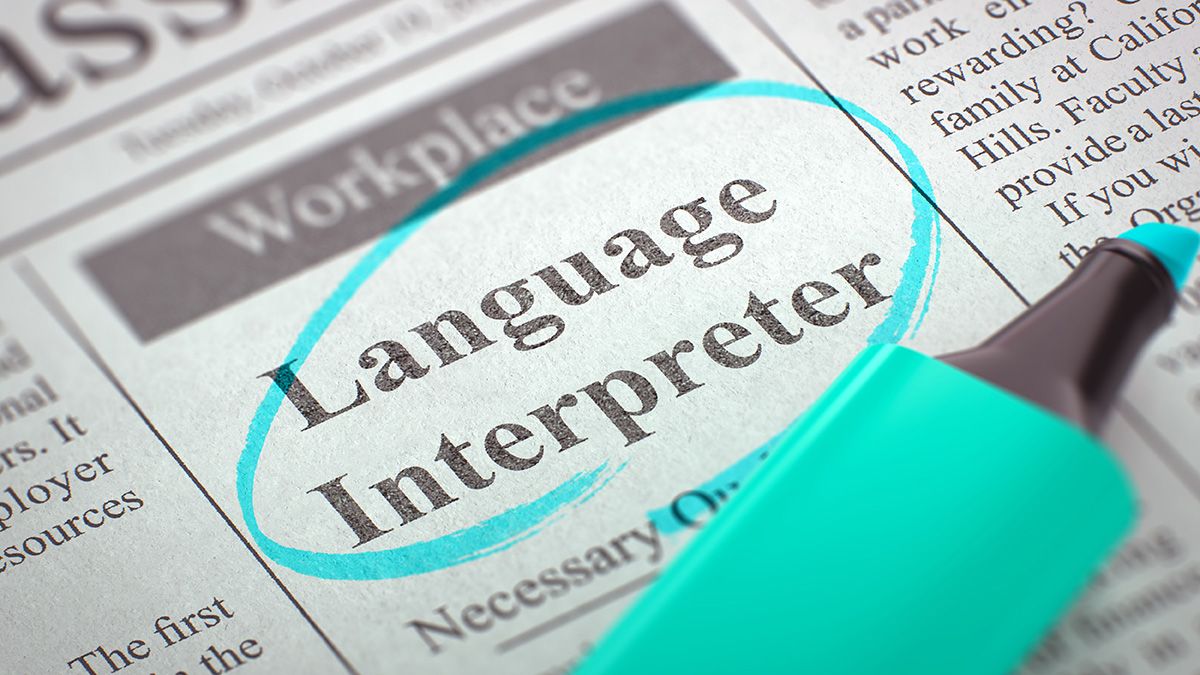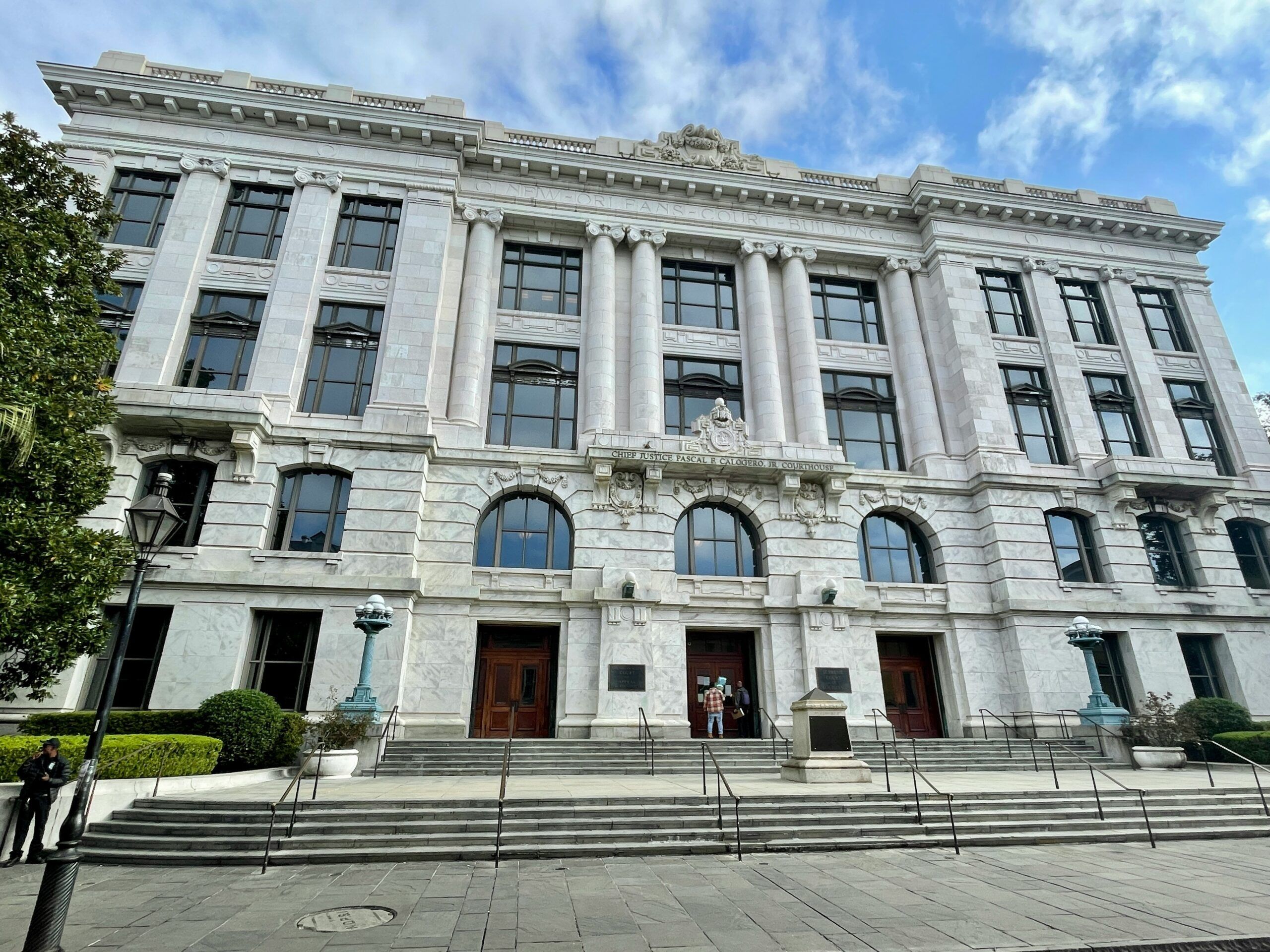Featured Topic
ABA Formal Opinion 500
The United States is becoming a more diverse nation in virtually every way, and this increasing diversity is impacting the legal profession in significant ways as well. One aspect of our nation’s increasing diversity is linguistic. For more and more Americans, English is not a first language, and, in some cases, English proficiency is low. According to a new opinion issued by the ABA Committee on Ethics and Professional Responsibility:
In 2013, approximately 61.6 million individuals, foreign and U.S. born, spoke a language other than English at home. While the majority of these individuals also spoke English with native fluency or very well, about 41 percent (25.1 million) were considered as having Limited English Proficiency (LEP), which is defined as speaking English “less than very well.” Jie Zong & Jeanne Batalova, The Limited English Proficient Population in the United States in 2013, MIGRATION POLICY INSTITUTE (July 8, 2015) [hereinafter Limited English Proficient Population], https://www.migrationpolicy.org/article/limited-english-proficient-population-united-states-2013. 2019 data from the U.S. Census bureau estimates that 22% of households in the U.S. speak a language other than English in the home. U.S. CENSUS BUREAU SELECTED SOCIAL CHARACTERISTICS IN THE UNITED STATES (2019)…
Meanwhile, lawyers practicing in American courts must do so in English, and many are not multilingual. For unilingual lawyers dealing with clients and prospective clients with Limited English Proficiency, the communication barrier can be more than a practical challenge; it may have ethical implications. Now, the ABA has issued formal Opinion 500 to provide guidance to lawyers who encounter these situations.
ABA Formal Opinion 500, issued on October 6, 2021, explores the ethical requirements a lawyer must comply with when the lawyer does not share a common language with a client. The Opinion begins its analysis with an examination of Model Rules 1.1 (on competence) and 1.4 (on diligence):
The foundational rules of competence (Rule 1.1) and communication (Rule 1.4) in the ABA Model Rules of Professional Conduct establish a baseline for a lawyer’s duties when there is a barrier to communication because the lawyer and the client do not share a common language, or when a client is a person with a non-cognitive physical condition that affects how the lawyer communicates with a client, such as a hearing or speech disability. This baseline prescribes that when a lawyer and client cannot communicate with reasonable efficacy, the lawyer must take steps to engage the services of a qualified and impartial interpreter and/or employ an appropriate assistive or language-translation device to ensure that the client has sufficient information to intelligently participate in decisions relating to the representation and that the lawyer is procuring adequate information from the client to meet the standards of competent practice.
Model Rule 1.1 is essentially the same as KRPC 1.1 and Missouri Rule 4-1.1. This is also true of Model Rule 1.4, which reads:
(a) A lawyer shall:
- Promptly inform the client of any decision or circumstance with respect to which the client’s informed consent, as defined in Rule 1.0(e), is required by these Rules;
- Reasonably consult with the client about the means by which the client’s objectives are to be accomplished;
- Keep the client reasonably informed about the status of the matter;
- Promptly comply with reasonable requests for information; and
- Consult with the client about any relevant limitation on the lawyer’s conduct when the lawyer knows that the client expects assistance not permitted by the Rules of Professional Conduct or other law.
(b) A lawyer shall explain a matter to the extent reasonably necessary to permit the client to make informed decisions regarding the representation
In Kansas Rule KRPC 1.4 reads:
(a) A lawyer shall keep a client reasonably informed about the status of a matter and promptly comply with reasonable requests for information.
(b) A lawyer shall explain a matter to the extent reasonably necessary to permit the client to make informed decisions regarding the representation.
The first line of Comment 3 to KRPC 1.4 reads:
Ordinarily, the information to be provided is that which is appropriate for a client who is a comprehending and responsible adult.
Missouri Rule 4-1.4 reads:
(a) A lawyer shall:
- Keep the client reasonably informed about the status of the matter;
- Promptly comply with reasonable requests for information; and
- Consult with the client about any relevant limitation on the lawyer’s conduct when the lawyer knows the client expects assistance not permitted by the Rules of Professional Conduct or other law.
(b) A lawyer shall explain a matter to the extent reasonably necessary to permit the client to make informed decisions regarding the representation.
Comment 5 to Missouri Rule 4-1.4 states, in part:
Ordinarily, the information to be provided is that appropriate for a client who is a comprehending and responsible adult.
According to the Opinion, the “duty to communicate” imposed by Rule 1.4 does not lessen when a client has difficulties understanding a lawyer because of linguistic issues. The Opinion cites a number of state ethics opinions to support this interpretation of Rule 1.4: State Bar of Ariz. Op. 97-05 (1997) (presence of interpreters to facilitate communication between lawyers and clients who do not share a common language furthers the purposes of Rule 1.4); Utah Ethics Advisory Op. Comm., No. 96-06 (1996) (“A language barrier does not reduce the attorney’s duty to communicate adequately with the client, as required by Rule 1.4.”); N.Y. City Bar Formal Op. 1995-12 (1996) (Rule 1.4 obligation applies to client with whom the only means of effective communication is through a sign language interpreter).
In practice, this means a lawyer must make a determination as to whether a language barrier requires that the lawyer take steps to eliminate this barrier in order to comply with Rule 1.4 and ensure that she and her client understand each other adequately so as to ensure that she may comply with the Rules of Professional Responsibility. The burden is on the lawyer to make this determination and to take remedial steps to overcome the language barrier. Once a lawyer has made a determination that there is a language barrier, the lawyer must then determine how best to overcome that barrier. In doing so, the lawyer must consult with the client, but the lawyer cannot simply shift the burden of dealing with the language problem to the client.
The usual way to overcome a language barrier is to employ a translator and/or interpreter. Once again, though, the burden is on the lawyer to find a competent translator:
In most situations, the verification of a prospective interpreter’s or translator’s level of skill and capacity to convey legal concepts is best achieved through engagement of the services of an outside professional to assist the lawyer in the delivery of legal services. Depending on the circumstances, alternative arrangements may suffice. For example, a lawyer may look to a multilingual lawyer or non-lawyer staff member within the firm to facilitate communication with a client. If a nonprofessional interpreter is contemplated, however, the lawyer should proceed cautiously in light of the reduced ability to assess the nonprofessional’s level of proficiency and the concomitant increased risk of inaccuracies in interpretation or translation.
In some instances, a client’s friend or a family member may function as a viable interpreter or translator. But particular care must be taken when using a client’s relatives or friends because of the substantial risk that an individual in a close relationship with the client may be biased by a personal interest in the outcome of the representation. In such situations, a lawyer must exercise appropriate diligence to guard against the risk that the lay-interpreter is distorting or altering communications in a way that skews the information provided to the lawyer or the advice given to the client. Lacking accountability to the lawyer or firm derived from an employment or other contractual relationship, relatives and friends of the client may also be less reliable in providing interpretation or translation services when needed.
Beyond pre-screening the translator for competency, the lawyer is obligated to supervise the translator pursuant to Model Rule 5.3. And, most importantly, the lawyer must ensure that the translator understands and complies with the Rules of Professional Responsibility, including the client confidentiality rules.
The Opinion also acknowledges the financial burdens incident to hiring a professional translator. It advises the lawyer should decline or withdraw from the representation if obtaining necessary services would place an unreasonable financial burden on the lawyer or the client. But it notes the lawyer may “associate with another lawyer or law firm that can appropriately address the language-access issue, such as a multilingual lawyer.”
The Opinion also discusses the special problems of how cultural context and national origins may affect translation and comprehension, the need to be sensitive to such matters in hiring a translator, and the possibility that a translator may not understand all of these issues:
Beyond language differences, the ability to understand, effectively communicate, gather information, and attribute meaning from behavior and expressions are all affected by cultural experiences. Competently mediating these differences to achieve the ends of the representation for the client requires: (i) identifying these differences; (ii) seeking to understand them and how they bear upon the representation; (iii) paying attention to implicit bias and other cognitive biases that can distort understanding; (iv) adapting the framing of questions to help elicit information relating to the representation in context-sensitive ways; (v) explaining the matter in multiple ways to promote better client insight and comprehension; (vi) “allow[ing] for additional time for client meetings and ask[ing] confirming questions to assure that information is being exchanged accurately and completely”; and (vii) conducting additional research or drawing upon the expertise of others when that is necessary to ensure effective communication and mutual understanding.
In a footnote, the Opinion hints that there may be technical solutions to lawyer-client language barriers that may obviate the necessity to hire a translator:
Electronic text and voice translation software and devices, including text-to-text, text-to-speech, and speech-to-speech translators such as telecommunications relay service (TRI) (free – dial 7-1-1), video relay service (VRS) (free – subscriber based) and video remote interpreting (VRI) (fee based), have the capacity to translate from one language to another in close to real time. Brian Heater, Interpreter, Google’s real-time translator, comes to mobile, TECH CRUNCH (Dec. 12, 2019, 9:00 AM), https://techcrunch.com/2019/12/12/interpreter-googles-real-time- translator-comes-to-mobile/. Depending on the circumstances, use of such technologies in lieu of or in addition to the engagement of a human interpreter or translator may be appropriate and sufficient to satisfy the ethical obligations of communication and competence. Owing to the rapid evolution of these technologies and the variability of client needs in the context of language access, an analysis of whether and when a technology will address a particular language-access quandary is beyond the scope of this opinion. The Committee notes that the availability of assistive and translation technologies is another example of the ever-increasing impact of technology on the practice of law and underscores the duty of lawyers to develop an understanding of relevant technology. MODEL RULES OF PROF’L CONDUCT R. 1.1 cmt. [8] (“To maintain the requisite knowledge and skill, a lawyer should keep abreast of changes in the law and its practice, including the benefits and risks associated with relevant technology . . . .”).
As electronic translation devices become more effective, lawyers may well want to acquire such devices if they have substantial numbers of clients with whom they do not share a common language.
The issuance of ABA Formal Opinion 500 is both timely and important. As the United States continues to become more diverse linguistically, lawyers must adapt to the ways in which this diversity will change the practice of law. Law firms should consider hiring multilingual lawyers; contracting with competent, culturally, sensitive translators; and, as the technology improves, purchasing electronic translation devices so as to accommodate these changes in compliance with the Rules of Professional Responsibility.
About Joseph, Hollander & Craft LLC
Joseph, Hollander & Craft is one of the premier litigation firms in Kansas. From our offices in Kansas City, Lawrence, Overland Park, Topeka and Wichita, the firm’s attorneys aggressively represent our clients in cases in Kansas, Missouri, and across the United States. When we can’t resolve our clients’ problems with practical recommendations and reasonable negotiations, we use our experience and skills to control the litigation and produce decisive results.
When your business, your freedom, your property, or your career is at stake, you want the attorney standing beside you to be skilled, prepared, and relentless. We undertake complex contract and civil rights litigation, defend against life-changing criminal prosecutions, protect children and property in divorce and family law cases, and battle claims of professional misconduct against attorneys, doctors, judges, accountants, real estate agents, and others.












